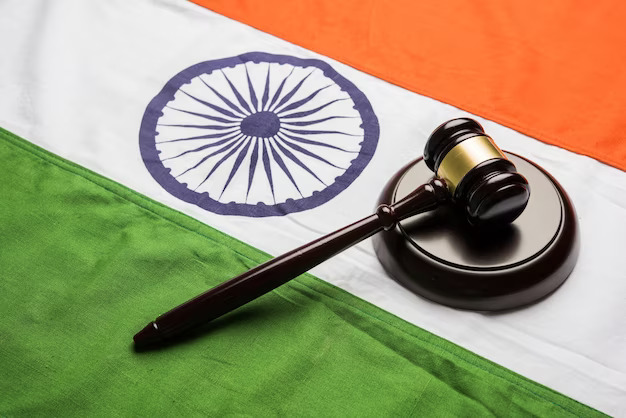What Is The Legal Procedure For Christian Divorce?
Legal Procedure For Christian Divorce
Indian Divorce Act, 1869 regulates the divorce for persons professing christian religion. Get your answers through our legal experts for any query related to your separation. We have professional lawyers who are skilled in managing complex divorce issues.
Legal Grounds:
- Adultery
- Addiction
- Abundance
- Abandonment
HowY/our Lawyer helps in Christian Divorce?
Our consultant will discuss the issue over a 24X7 helpline .
Step 1
Our consultant will discuss the issue over a 24X7 helpline .
Step 1
A detailed analysis of your case will be done by an experienced lawyer.
Step 2
You will be able to track your case with a personal account
Step 3
Overview
The Indian Divorce Act of 1869 is the legislation that governs the law of divorce for Christians and addresses various marriage-related issues. It applies when one of the parties involved in the proceedings is a Christian. The Act is based on English divorce legislation (Section 7) and provides guidelines for seeking dissolution of marriage.
Part III, Section 10 of the Act outlines the grounds on which a husband or wife can petition for the dissolution of their marriage. These grounds are specified within the Act.
In order to address recurring challenges to certain provisions of the Act, the Indian Divorce (Amendment) Act of 2001 was enacted. This amendment brought several changes to the law. Section 10 of the Act was replaced with a new clause, and a new Section 10-A was introduced. The Amendment Act of 2001 modified Part III, which covers the dissolution of marriage, and Part IV, which addresses the nullity of marriage.
These changes aimed to update and refine the provisions of the Act to ensure their continued relevance and effectiveness.

Grounds Of Divorce
Marriages, whether entered into before or after the Indian Divorce (Amendment) Act of 2001, can be terminated by filing a petition in the district court by one of the spouses. The grounds on which a spouse can seek divorce under this Act include:
- Adultery: If the spouse has engaged in an extramarital affair.
- Conversion to another religion: If the spouse has converted to a religion other than Christianity, thereby renouncing their Christian faith.
- Incurable insanity: If the spouse has been suffering from incurable insanity for a continuous period of at least two years prior to filing the petition.
- Incurable leprosy: If the spouse has been suffering from a virulent and incurable form of leprosy for a minimum of two years immediately preceding the petition.
- Contagious venereal disease: If the spouse has been suffering from a contagious form of venereal disease for a period of at least two years prior to filing the petition.
- Unheard of for seven years: If, for a continuous period of seven years or more, the spouse has not been heard of by those who would normally have heard of them if they were alive.
- Non-consummation of marriage: If the spouse has willfully refused to consummate the marriage, resulting in the marriage not being consummated.
- Failure to comply with a decree for restitution of conjugal rights: The court must satisfy itself that the spouse has failed to comply with a decree for restitution of conjugal rights for a period of two years or more after the passing of the decree or dissolution of the marriage.
- The court will assess the evidence and determine whether these grounds for divorce have been substantiated before granting the dissolution of marriage.
Court's Power To Issue A Dissolution Decree:

According to Section 14 of the Indian Divorce Act, 1869, if the Court is satisfied based on the evidence that the case has been proven and there is no evidence of the petitioner being accessory to or conniving at the marriage in question or the adultery of the other party, or the petitioner having condoned the adultery, the Court shall grant a decree declaring the marriage to be dissolved.
However, if the Court finds that the petitioner has committed adultery during the marriage or if the petitioner has unreasonably delayed filing or pursuing the petition, or has been cruel to the other party, or has deserted or willfully separated from their spouse without reasonable excuse before the petition for adultery was filed, the Court is not obligated to grant the decree of divorce.
For the purposes of this Act, adultery shall not be considered as having been condoned unless there has been a restoration or continuation of conjugal cohabitation.
In summary, if the Court determines that the case has been proven and there are no grounds to suggest connivance, accessory behavior, or condonation, a decree of divorce may be granted. However, if the petitioner is found guilty of adultery, unreasonable delay, cruelty, or desertion, the Court has the discretion to deny the decree. The restoration or continuation of conjugal cohabitation is necessary to consider adultery as condoned under the Act.
Section 10-A Of The Indian Divorce Act, 1869:
A petition for dissolution of marriage may be presented to the District Court by both parties to a marriage together, whether such marriage was solemnized before or after the commencement of the Indian Divorce (Amendment) Act, 2001, on the ground that they have been living separately for a period of two years or more, that they have been unable to live together, and that they have decided to dissolve their marriage.

